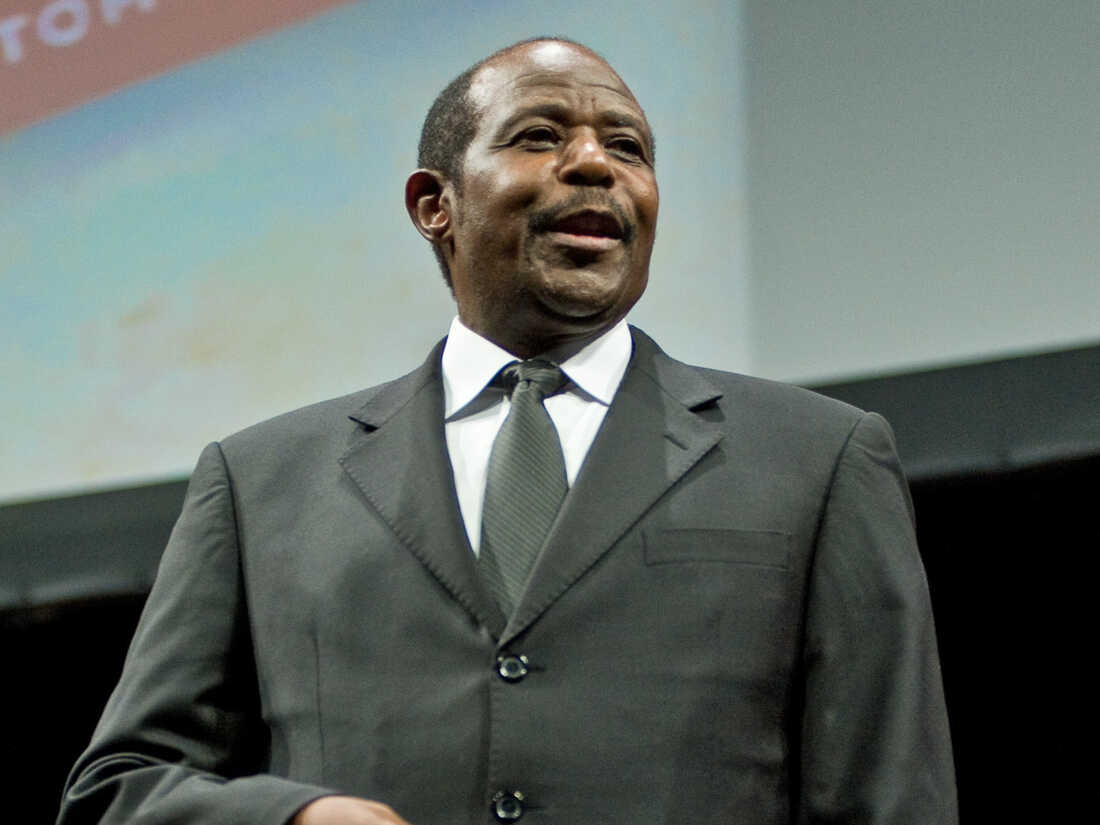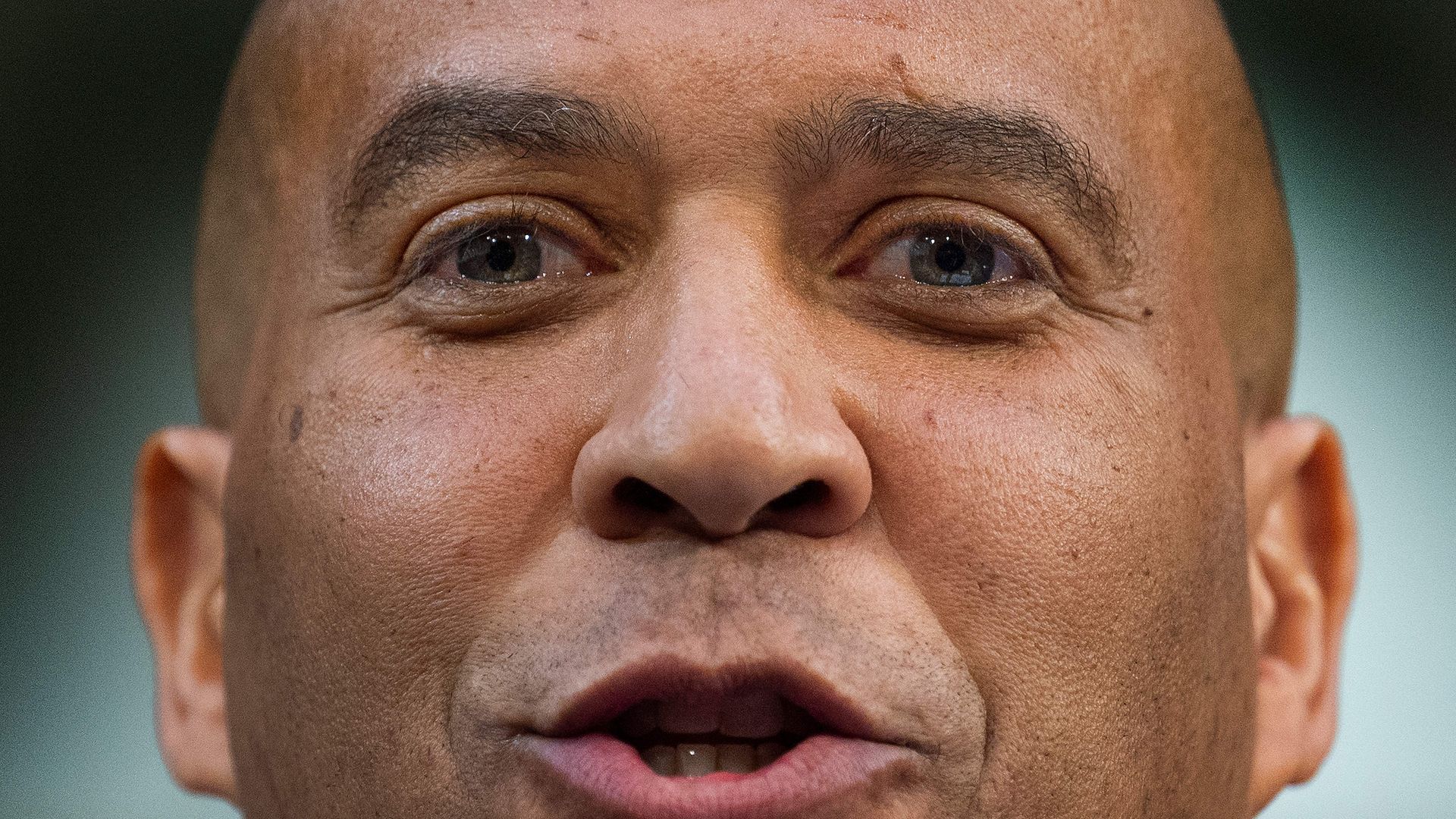Shanghai lockdown: The hard life of a homeless deliveryman
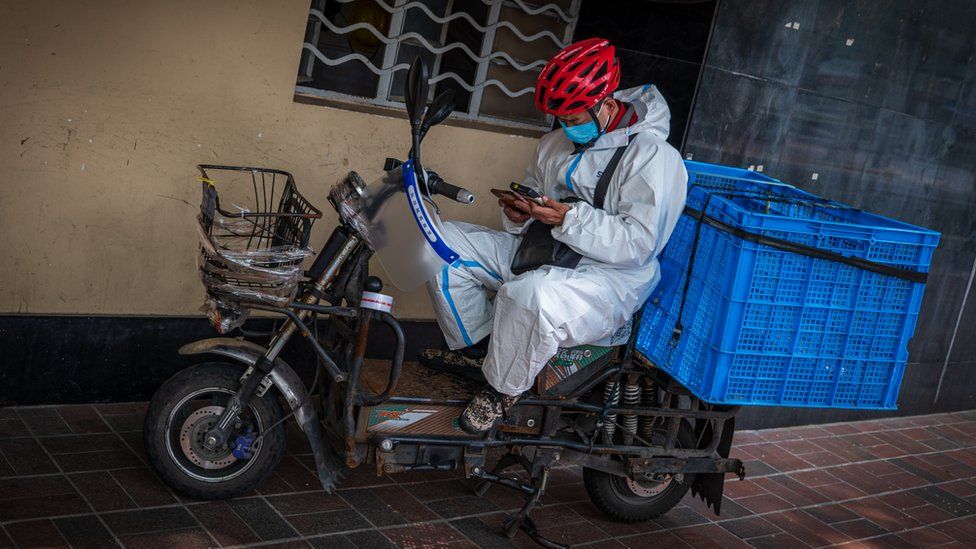
Weeks into a strict lockdown, most of Shanghai's 25 million population continue to rely on delivery riders to bring them food and supplies. But this largely invisible workforce of 20,000 faces a lack of shelter and safety. Two delivery riders tell the BBC their stories.
I've been so busy. So many people need supplies. I make deliveries all day long, then when it's approaching midnight, I look for a place to sleep.
I left my apartment on 8 April and haven't been back since. The Shanghai government allows delivery riders to leave and enter their residential compounds. But the compounds insist on enforcing their own policies, and most don't allow riders to return to their own homes. There are hotels that are open, but not many are open to us.
There was a tent in front of my compound. You know, those blue ones set up for Covid testing. When I left home, the compound managers asked me to help them buy supplies and in exchange they offered me the blue tent to sleep at night. I left all my stuff in there.
But one day the tent was gone. I couldn't find my stuff. The managers said it wasn't their business. Security guards there said they didn't know where my stuff went.
So I had to look for a new place to sleep. Sleeping under a bridge just comes naturally to us delivery riders - it can block out the wind and rain. I usually fall asleep immediately after lying down - I feel so tired by then!
One day I forgot to pay attention to the weather forecast. It was raining heavily and all the space under the bridge had been taken. I found an ATM room to sleep. It was quite a good place, no-one else was around. My only hope was that the police wouldn't show up and kick me out.
But after two nights there, around 2am, policemen on patrol saw me and chased me away. They said I should go to a homeless shelter. But I've tried and it's not open. Nobody was there, not even security guards.
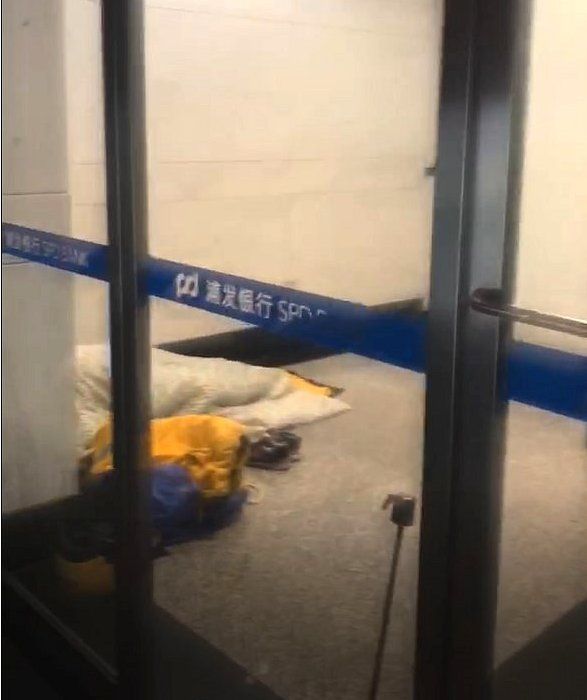 SUPPLIED TO THE BBC
SUPPLIED TO THE BBCIn the beginning I survived on dry instant noodles. Later a group of delivery riders found a restaurant that opened secretly and now we go there to buy takeaways. The police usually just ignore it. We do need a place to eat, right? Some shops also have an outdoor space where there are electrical sockets. We sneak over to charge our phones.
There was a story going round that a delivery rider died on the streets after getting into a crash. Of course I worry that will happen to me too. But I've been very careful. I always go very slow. If I get into an accident in a remote area, it would be extremely dangerous. The biggest problem is if your scooter breaks down and there is no place to fix it. You can't work any more.
Many people saw news reports saying delivery riders can earn up to 10,000 yuan per day ($1,500; £1,200). Since then many have asked me how to become one. My advice is usually: "Don't become a rider."
In Shanghai, the pay we earn as riders is quite all right. But most riders only earn a few hundred yuan a day. And I don't think everyone can put up with such hardship, such living and working conditions.
But you know, if we weren't doing this, we wouldn't have any income either while under lockdown. That's stressful.
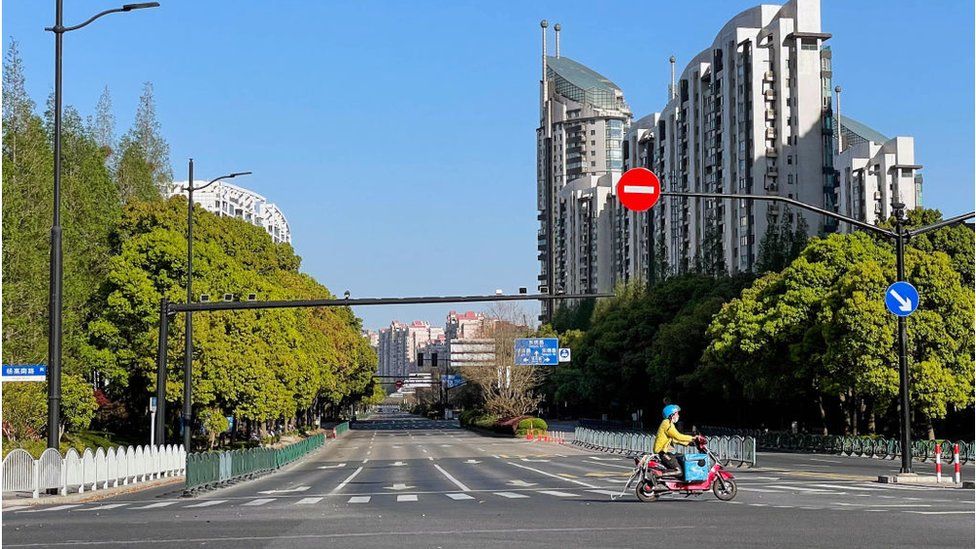 GETTY IMAGES
GETTY IMAGESI was born in 1999 in Anhui province. When I graduated from high school, I couldn't get into a good university. The tuition fees were too expensive for my family. I was so young and had no idea what I could do. My mum suggested I join my cousin in Shanghai. At least I wouldn't be left with no place to sleep and no food to eat.
So I came to Shanghai and worked with my cousin to sell computers. That lasted about two years. Business went down during Covid so I started to look for a new job. I had no place to live back then. I found a shared rental with another rider. It seemed like he was earning a lot. I said: "Brother, could you help me become a rider, too?" So about half a year ago I became one.
People told me Shanghai is a developed city, better than my hometown. Now even my family is asking me to go home. They've all heard about the situation here. It's unimaginable that people can starve in Shanghai nowadays.
But it's not like I'm starving or anything. I'm from the countryside, I slept in a cowshed when I was a child. I'll be fine.
I used to earn on average 4.5 yuan per order. But I don't take these orders anymore, nobody does, it's too low. These days I take orders privately from my clients, through chat groups. I can earn around 1,000 yuan a day.
I see larger residential compounds doing group buys of food, but smaller compounds with just a dozen residents have nothing. It's so hard to get people to deliver things to them, it's also hard to order supplies in the first place. Many elderly people also don't know how to do group buys.
Orders with small quantities of food won't get delivered now. Fruit shops won't sell individual pieces of fruit any more - you have to buy in bulk now. If someone wants 20 yuan worth of vegetables, I'll end up spending half a day looking for that and get nothing, as only bulk vegetable packages are available and each costs over 100 yuan.
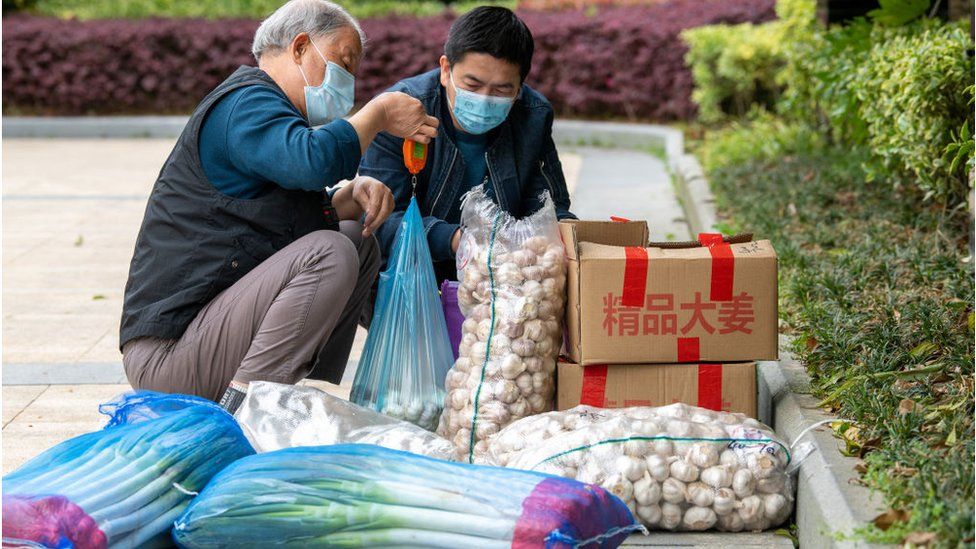 GETTY IMAGES
GETTY IMAGESNow we have no food and no water, and sleep on the streets. I know at least 40 riders in the same situation as me. There are delivery riders who work for companies which provide hotel rooms for them. But there are those who take online orders from customers, like us, and the local government has done nothing to help us find a place to stay.
My residential compound won't let me back in, they say it's likely I'll bring the virus back. I can't go home even if I test negative for Covid. I've been going to hospitals to get tested every day. I'm afraid of getting Covid - all the riders are afraid of it.
So I just find a place to sleep outside. My feet stink so bad you can smell them from a distance! I'll shower eventually, maybe after the lockdown lifts.
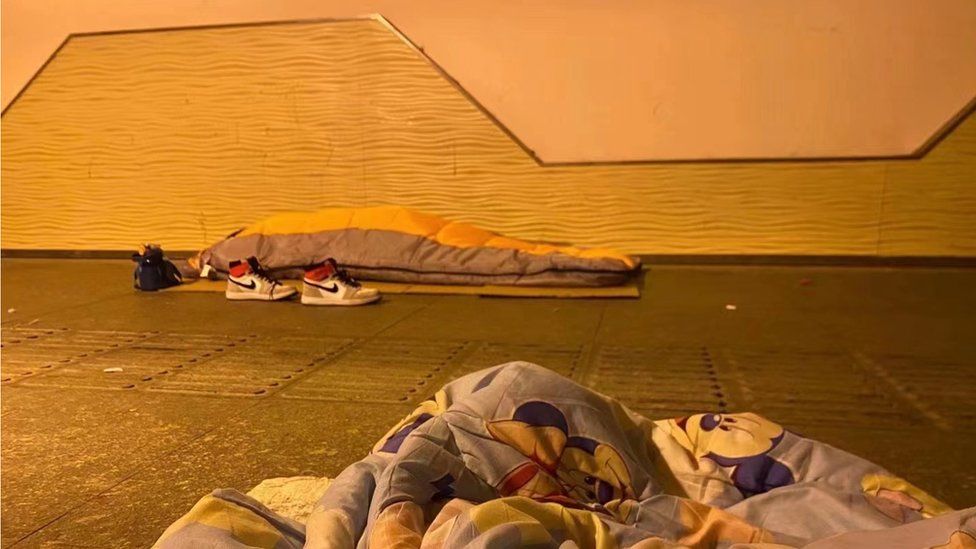 SUPPLIED TO THE BBC
SUPPLIED TO THE BBCWhat's the point of resting at home anyway? The first week of the lockdown, I only got two cabbages. The second week I only received a box of medicine. Who can survive on that? What do I eat? It's better to be outside - at least I can still find some food.
Delivering food is better than working in a factory. I've worked in a few in Shenzhen, earning only 200 yuan per day, working 12 hours a day. Delivery riders have better income and more freedom. How much you earn depends on how much effort you put in.
My family has been asking me to come back. But how can I get out now? People even got chased back into the city after driving out to the highway.
I'm just waiting for the lockdown to be lifted. I'll leave then. I don't know how much longer I can hold on for.
I'm so done with Shanghai. Once I leave, I'll never come back.
Interviews edited by Tessa Wong.

